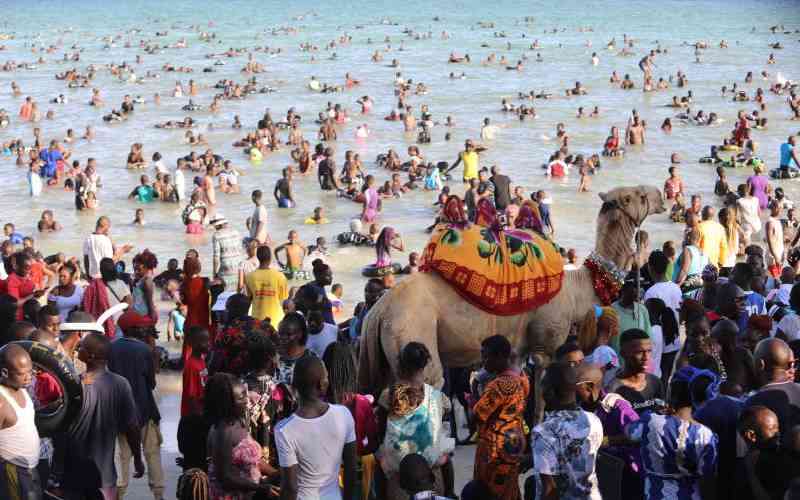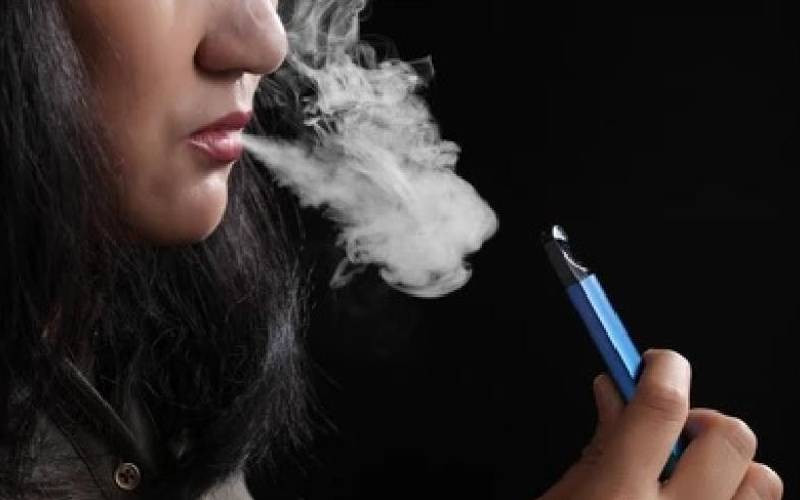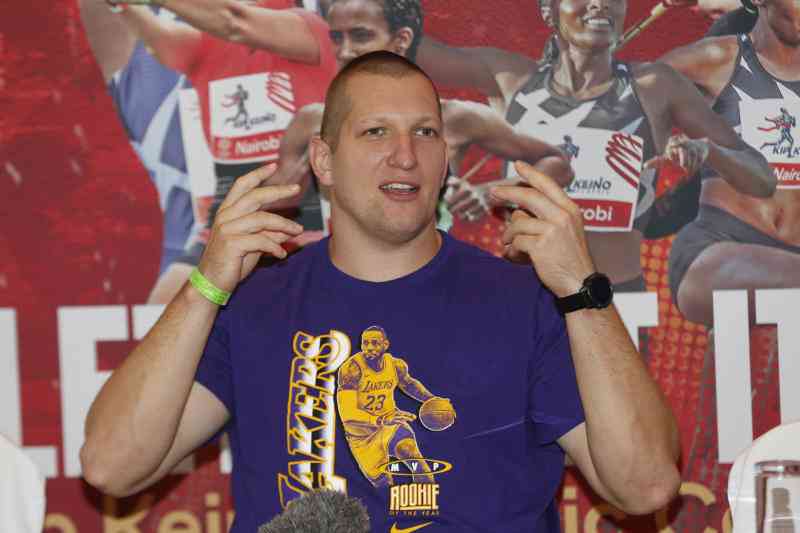 |
|
Former convict Peter Kariuki tells his heart-wrenching story. (Photo:Jonah Onyango/Standard) |
Peter Kariuki had spent 4,062 days behind bars as a death row convict before he walked out of prison and reunited with his family last week.
Court of Appeal judges GBM Kariuki, John Mwera and Agnes Murgor acquitted Kariuki on December 22, a decision that was received as a Christmas gift by his family.
For the first time in eleven years, the father of five marked the festive season a free man.
“I am very happy for being exonerated. I am grateful to God for his blessings. It’s a wonderful feeling to be with my friends and family,” Kariuki says during an interview at his home in Kawangware, Nairobi.
He admits to feeling overwhelmed. He is still trying to get used to being home, seeing new faces and having his freedom. Sometimes, he finds himself lost in his memories.
As he narrates his story and what he went through in prison, tears roll down his sunken cheeks, the recollections too painful to bear.
Kariuki was to go to the gallows for allegedly robbing Mathew Kipkemboi of a mobile phone worth Sh4,700 at a bus stop in Ongata Rongai. He was also accused of stealing a pair of shoes, an employment card and an identity card all valued at Sh11,400 on July 28, 2003.
A Kibera chief magistrate’s court found him guilty of robbery with violence on December 6, 2004. At the time, he was 45 and ignorant of court proceedings. He began his term at Kamiti Maximum Security Prison.
“I tried to explain that I wasn’t the one who stole the phone in vain. The night he claimed I stole the phone, I was at home because I never went out at night. Nevertheless, I was arrested and then sentenced to jail,” Kariuki says as he whips out a handkerchief the pocket to wipe his tears.
“I was kept in a locked room and never came out. There were times I got so sick that I thought I would die. In 2009, I was partially pardoned by then President Mwai Kibaki and finally allowed to mingle with the other inmates.”
However, the ever hopeful man says that even in the darkest moments, he never despaired: “I always believed that someday, I would be released and reunite with my family.”
The interview is interrupted several times as more family members trickle in to see their long lost kin. They burst into song, and dance, giving thanks to God.
Kariuki is forced to retell his story again and again, and each time he cannot hold back his tears.
While he was in prison, his wife, Susan Igandu, was facing challenges of her own.
Mistaken identity
Stay informed. Subscribe to our newsletter
“It was difficult dealing with my husband’s absence. After he was sentenced to death, I could not trace him. I looked for him for six months before I found him at Naivasha Maximum Prison. People used to tell me he was dead, but I refused to give up,” she says.
“When I went to the prison and saw him for the first time after his sentencing, I cried. I remember he also cried because it had been a long time since we had seen each other.
“Every time I went to visit him in prison, my heart was in agony, seeing him behind bars. His release is the best Christmas gift.”
When he was released, the Court of Appeal ruled that Kariuki’s was simply a case of mistaken identity.
The details of that day are fresh in his family’s mind.
“I was overjoyed when I heard of his release. I called family members and friends to share the wonderful news. While Kariuki was in prison, our father and sister as well as his child died but he had no idea. With him in jail, it was as if we had lost him, too,” says his sister, Nancy Gatumu, unable to hide her beaming smile.
“God has answered our prayers. It is as if my father is here with us again because Kariuki is the eldest.”
The journey to freedom has taken many years, but Kariuki is grateful to his lawyer, John Swaka who walked with him through the often discouraging times.
Kariuki filed an appeal at the High Court but on June 14, 2007 but it was dismissed by High Court judges Jackton Ojwang’ and G.A. Dulu.
However, the appellate judges quashed the death sentence and said the robbery with violence charge Kariuki faced was not proven beyond reasonable doubt.
Asked whether he is resentful towards the man responsible for his ordeal, the freed man gives a surprising answer: “I have forgiven him because I, too, was forgiven. I do not harbour any ill feelings towards him.”
He trained as a carpenter while in jail and says that if he gets capital, he will open a furniture workshop to help him rebuild his life and fend for his family.
Through his lawyer, Kariuki is in the process of filing for compensation from the Government.
He is also planning to go to his upcountry home in Embu and reunite with his children and the rest of his family, but this has been shelved because he has no money.
He was only given Sh100 when he left jail, and he already spent it on bus fare to Kawangware.
But Kariuki and his family say will not dwell on their past and present troubles; they are just looking forward to making new memories for the years to come.
 The Standard Group Plc is a
multi-media organization with investments in media platforms spanning newspaper
print operations, television, radio broadcasting, digital and online services. The
Standard Group is recognized as a leading multi-media house in Kenya with a key
influence in matters of national and international interest.
The Standard Group Plc is a
multi-media organization with investments in media platforms spanning newspaper
print operations, television, radio broadcasting, digital and online services. The
Standard Group is recognized as a leading multi-media house in Kenya with a key
influence in matters of national and international interest.
 The Standard Group Plc is a
multi-media organization with investments in media platforms spanning newspaper
print operations, television, radio broadcasting, digital and online services. The
Standard Group is recognized as a leading multi-media house in Kenya with a key
influence in matters of national and international interest.
The Standard Group Plc is a
multi-media organization with investments in media platforms spanning newspaper
print operations, television, radio broadcasting, digital and online services. The
Standard Group is recognized as a leading multi-media house in Kenya with a key
influence in matters of national and international interest.









